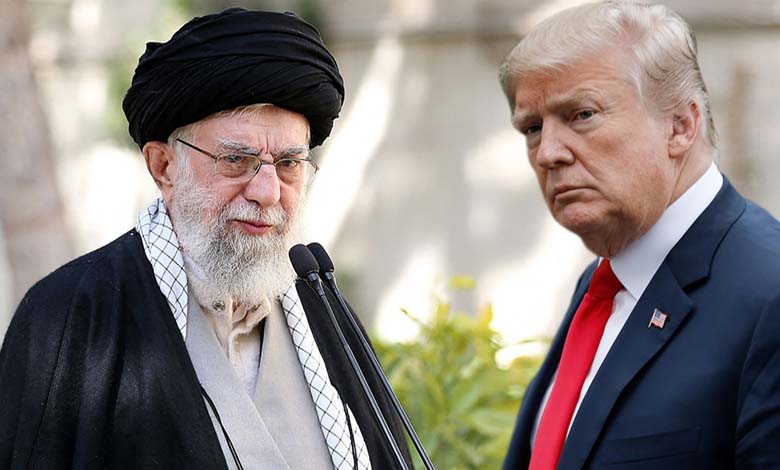Iran Tests Trump’s Principles—Will He Fall Into the Trap His Predecessors Warned Against?

At a critical moment of heightened tension, warnings intersect with military escalation, and expectations are rising that Donald Trump may soon pivot toward choices that could shift the course of the confrontation.
-
Trump and Iran: 4 Possible Scenarios, Including “Shock and Awe”
-
Energy Investments: Iran’s New Card to Woo Trump and End Sanctions
There is growing speculation in Washington that President Donald Trump may soon heed Israeli calls to launch a decisive strike on Iran’s nuclear program, using bunker-busting weapons that only the United States can deploy.
Following Israeli strikes on Iran that targeted nuclear facilities, senior military figures, and nuclear scientists, Trump’s rhetoric has taken a dramatic turn.
On Tuesday, CNN reported that Trump “has begun to embrace the idea of using U.S. military assets to strike Iranian nuclear sites” and is increasingly frustrated with his earlier failed attempt to resolve the issue through talks with Tehran.
-
Trump’s Pressure Pushes Iran to Accept U.S. Demands on Nuclear File
-
Iran’s Nuclear Program Back in the Spotlight… and Trump Seeks Political Breakthrough
But CNN questioned whether his sharp tone is genuine, or if he is trying to force Iran back into diplomacy and the “unconditional surrender” he demanded on social media the day before.
Nonetheless, Trump appears to be on the edge of a major undertaking that contradicts the very principles he has long championed, according to the same report.
If he initiates war with Iran, he would violate the core tenet of the “America First” movement he leads and resemble the kind of foreign interventionists he has frequently criticized.
-
Between Escalation and De-escalation: How Will Trump Handle Iran?
-
Trump’s Return Pushes European Powers to Demand Increased Pressure on Iran
Trump has consistently declared that Iran—due to its threats to annihilate Israel and deep-seated hostility toward the U.S.—should never be allowed to acquire nuclear weapons.
What Comes After the Strike?
CNN notes that Trump is now considering the use of 30,000-pound “massive ordnance penetrators” to destroy Iran’s Fordow nuclear facility, buried hundreds of feet beneath a mountain.
However, what’s notably missing, the network points out, is any public statement from senior officials about the next steps after a strike—an absence that CNN describes as striking, especially in light of America’s painful 21st-century wars that began without clear exit strategies.
-
Iran Keeps Door Open for Dialogue with Trump and Prepares for New Sanctions
-
Nuclear Talks – Iran Announces Withdrawal from Sixth Round
Senator Chris Murphy warns that “anyone urging the U.S. to go to war with Iran has quickly forgotten the disasters of Iraq and Afghanistan.”
Previous U.S. Interventions in the Region
The Democratic senator from Connecticut recalled how these conflicts “turned into quagmires that ultimately killed thousands of Americans and gave rise to new insurgencies against U.S. interests and our allies in the region.”
CNN cited the U.S. invasion of Iraq in 2003, which toppled Saddam Hussein, led to the collapse of the Iraqi state, and unleashed a brutal insurgency. The country only regained fragile stability over two decades later.
-
Trump Doubts.. Iran Threatens: Is the Nuclear Deal Doomed Before It Begins?
-
Nuclear Talks: Iran Rejects Washington’s Proposal, Prepares Alternative Offer
In Afghanistan, former President George W. Bush ousted the Taliban after the 9/11 attacks but failed to build a stable nation. The 2021 U.S. withdrawal was described as “humiliating” and shattered President Joe Biden’s image as a foreign policy expert.
Even former President Barack Obama became ensnared in a similar situation when he led a military intervention in Libya in 2011 to remove Colonel Muammar Gaddafi, resulting in a country plagued by poverty and terrorism.
-
Nuclear Talks: Iran Rejects Washington’s Proposal and Prepares an Alternative
-
Iran’s Intelligence Minister to Soon Reveal Israel’s Hidden Treasure
These are all lessons that CNN says Trump understands well.
In a 2016 debate, he dealt a major blow to Jeb Bush in the primaries by calling his brother’s Iraq war a “big mistake.”
So, is Trump now becoming what he once warned against? CNN wonders.












